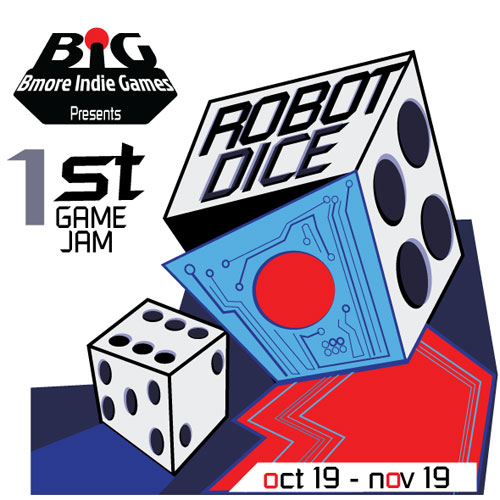As a real sport, “Pro Sewer Polo” would be decidedly disagreeable. But it exists in the video game world, where people don’t often dunk their heads in sewage.
It was one of the eight games created during the first indie game jam of the recently created Baltimore Indie Games group. The concept, said group cofounder Greg Aring, was to give Baltimore-area independent game developers one month (as opposed to a weekend-long hackathon) to create online games. The one catch, however, was that a random name generator determined the names of the games, and therefore the subjects of the games themselves, for each of the eight teams — hence, a game called “Pro Sewer Polo.” Around 40 developers participated by competition’s end on Nov. 19.
“We are very happy with how the event turned out,” Aring said.
View, and play, all eight games here.
Aring works at Mosaic Learning in Columbia, making educational games for people learning new job skills. Along with Firaxis Games employee Samuel Batista, Aring formed Baltimore Indie Games in late summer to “create a network where it’s possible for people to make small, indie games on their own, and find the resources they need to complete projects.”
“Our goal is to create a community and culture in the Baltimore region where local independent game developers of all experience levels can share experiences, learn and work together,” he said.
To do that, Aring hopes to coalesce the variety of people and studios that make up a burgeoning independent gaming culture in the Baltimore area.
Annual events such as Gamescape have pushed to the forefront smaller game development studios in the city and the surrounding counties, and as big-name studios have shut down — or consolidated operations, as happened with Zynga East in early 2013 — solo developers have looked to make inroads in the local gaming market.
“Baltimore was once kind of a hub for game development in the [1990s],” said Aring. “In the last five to 10 years, there’s been a huge surge of indie game developers who have really kind of paved the path for a lot of programmers and artists coming out of college.”
Aring knows. A graduate of the University of Maryland, Baltimore County, the 24-year-old has been building his own games since he graduated three years ago.
“There’s really a lot of opportunities that people can create for themselves,” he said.
Not to mention the learning opportunities for local middle and high school students, through such programs as those offered by nonprofit Code in the Schools, to develop programming skills by building their own games and getting in early on the growing independent gaming movement in Baltimore city.
Baltimore Indie Games, he reckons, is just one way to continue promoting that movement.
“We’re trying to create a culture within the social fabric of the city that supports independent games as a new form of art,” said Aring. “Where [independent game development] becomes part of the social consciousness of the city, in the way that local music defines the city.”
Join our growing Slack community
Join 5,000 tech professionals and entrepreneurs in our community Slack today!
Donate to the Journalism Fund
Your support powers our independent journalism. Unlike most business-media outlets, we don’t have a paywall. Instead, we count on your personal and organizational contributions.

National AI safety group and CHIPS for America at risk with latest Trump administration firings

How women can succeed in male-dominated trades like robotics, according to one worker who’s done it

Geomapping goes splat: The evolving future of Google Earth

